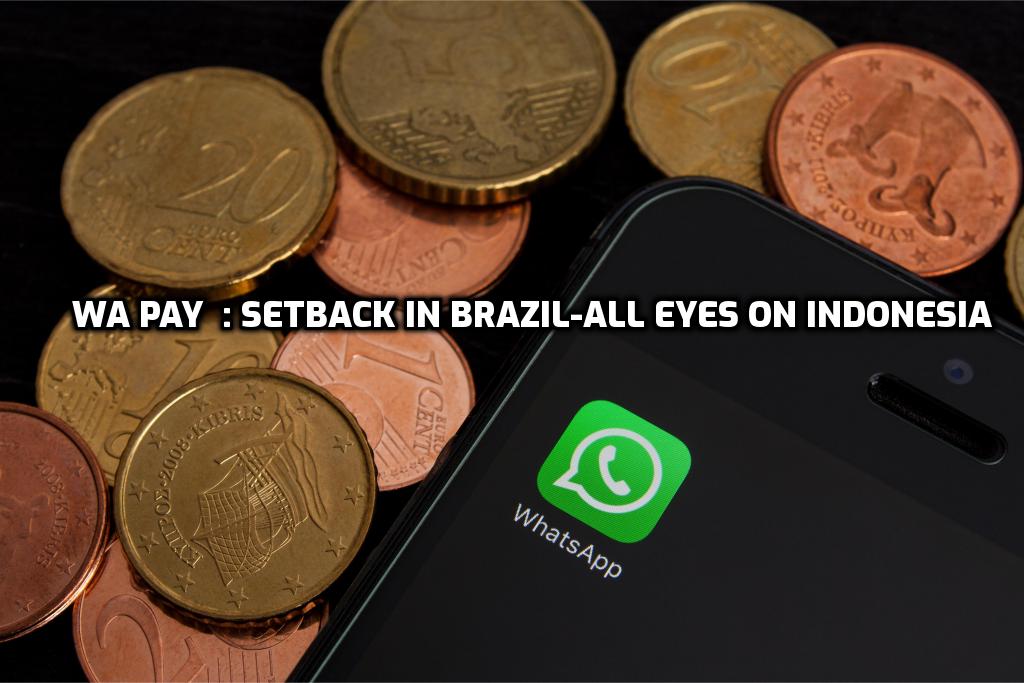
Brazil’s Central Bank and antitrust regulator suspended Facebook Inc.’s WhatsApp messenger payment features in the country, the app’s second-biggest market with more than 120 million users. The bank decision aims to “preserve an adequate competitive environment, that ensures the functioning of a payment system that’s interchangeable, fast, secure, transparent, open and cheap,” the monetary authority said in a statement on its website. Bank authorities requested that Mastercard Inc. and Visa Inc. stop payment and money transfer activities through the app. Meanwhile, Brazil’s antitrust regulator, known as Cade, said on Wednesday it is suspending WhatsApp’s partnership with electronic payment company Cielo preemptively. According to a statement on the regulator’s website, the vast WhatsApp user database coupled with Cielo’s high market share in payments could prove too high a barrier for any new competitors. Since the deal wasn’t presented for evaluation, regulators needed to act fast to avoid competition concerns, the statement read. The decisions are a setback for Facebook, which introduced WhatsApp’s payments system in Brazil earlier this month after testing it over the past two years in a handful of markets, including India, Indonesia and Mexico. Payments are a key element of WhatsApp’s long-term plan to offer commerce within the app. More than 5 million merchants around the world use a business version of the messenger app, and in countries like India and Brazil, WhatsApp serves as the main or only online presence for many mom-and-pop retailers.
“Our goal is to provide digital payments to all WhatsApp users in Brazil using an open model and we will continue to work with local partners and the Central Bank to make this possible,” a WhatsApp spokesperson said. ” In addition, we support the Central Bank’s PIX project on digital payments and together with our partners are committed to work with the Central Bank to integrate our systems when PIX becomes available,” the spokesperson said, referring to Brazil’s proposed instant-payment system. Brazil’s Central Bank said the suspension will let it evaluate any possible risk to the country’s system of payments and to determine whether the payments system meets the necessary rules. Starting the service without the regulator’s green light could generate “irreparable damage to the system, especially what concerns competition, efficiency and data privacy,” the banks said, adding that Mastercard and Visa could face fines if they don’t comply.
WhatsApp has been exploring adding its own payments feature for some time, first rolling out a beta version of WhatsApp Pay in 2018 in India. However, regulatory requirements and changing data privacy and compliance laws mean that Facebook-owned WhatsApp could never really get its payments arm off the ground on the Indian subcontinent, where it is still yet to fully launch after two years. India is by far WhatsApp’s biggest user base with over 400 million registered users, and Brazil is the second-largest market with 120 million monthly average users. While in India, WhatsApp payments trials attempted to integrate with the local UPI payment system which links Indian banks with mobile payments via a unified payment gateway, but in Brazil the service is using its parent company’s Facebook Pay method instead – which might be a reason why it can support transactions from local payment methods including credit/debit cards from Brazilian banks. WhatsApp has been in talks with multiple Indonesian digital payment firms to offer their mobile transaction services, in a bid to tap the nation’s fast-growing e-commerce sector. But unlike in India where it plans to offer direct peer-to-peer payment services, WhatsApp will simply serve as a platform in Indonesia supporting payments via local digital wallets due to tough licensing regulations, the sources told Reuters. The Indonesia model could become a template for WhatsApp to adopt in other emerging markets to get around regulations on foreign players creating their own digital wallets, the sources said. Indonesia, home to 260 million people and Southeast Asia’s largest economy, is one of the top-five markets globally for WhatsApp, with over 100 million users. The nation is set to see its e-commerce industry tripling to $100 billion by 2025, according to some estimates, but it also has some of the region’s strictest digital payments regulations. WhatsApp is in advanced talks with several digital payment firms including ride hailer Go-Jek, mobile payments firm DANA, backed by China’s Ant Financial, and fintech startup OVO, which is owned by Indonesian conglomerate Lippo Group and is also backed by ride hailing company Grab as per sources.
In January 2020, chief executive Zuckerberg commented on the company’s payments ambitions, including for WhatsApp, Facebook, and its other popular mobile application Instagram. “On payments, we’re focused in different places with different products. For things like Instagram and even a lot of what we’re doing on Facebook, it’s a lot more developed countries. For WhatsApp, it’s the biggest countries on WhatsApp. So countries like India and Mexico and Brazil and Indonesia will make up a large part of the community on WhatsApp,” he stated. Brazil the first country to be launched now has come to a grinding halt and it continues to struggle in India where the service has lost significant ground to competing e-payment methods like Google Pay and Walmart-backed PhonePE, so all eyes will now shift to Southeast Asia’s fastest-growing digital economy Indonesia. In April, Facebook announced that it had bought a 10% stake in Indian telecoms group Reliance Jio for $5.7bn (£4.5bn). That deal gives Facebook a powerful ally in Reliance Jio’s chairman Mukesh Ambani, who is Asia’s richest man.The two companies plan to focus on a partnership with Jio’s newly-launched e-commerce platform JioMart. Last month Facebook invested an undisclosed amount in Indonesia-based ride-hailing app Gojek.The firms will use the tie-up to expand Gojek’s digital payments service GoPay. It’s time for Small and Medium scale businesses in Indonesia need to start building their digital strategy around WhatsApp pay and influencers to score big and usher in growth in the covid and post covid phase.

